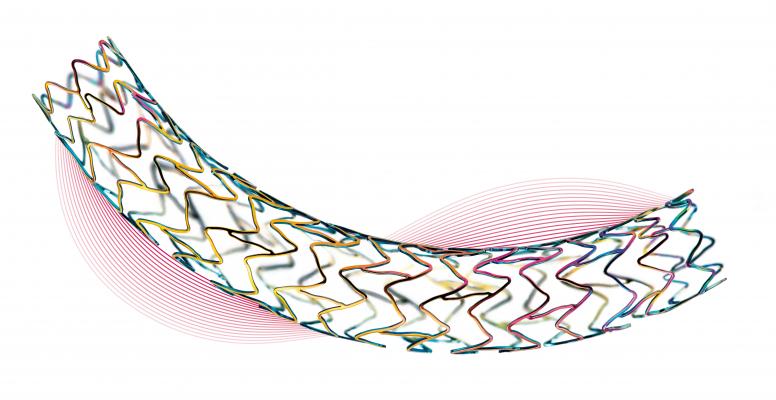
May 31, 2018 — Two-year outcome data from the BIO-RESORT randomized controlled trial were presented in a late-breaking clinical trials session at EuroPCR 2018, May 21-24 in Paris, France.
Results from this large-scale, three-arm trial with complex all-comers population treated with highly dissimilar contemporary drug-eluting stents (DES) confirmed the trend seen with the one-year data, supporting the use of ultrathin bioabsorbable polymer DES.
Data were presented by Dr. Marlies M. Kok, Thoraxcentrum Twente, MST, Enschede, the Netherlands and simultaneously published in EuroIntervention.
At the two-year follow-up in the BIO-RESORT trial (n=3,514), all three stents showed low target vessel failure (TVF) rates. Orsiro1 demonstrated a favorable trend without reaching statistical significance2 (Orsiro 6.6 percent, Synergy3 6.8 percent, Resolute Integrity4 8.3 percent).
The landmark analysis2 evaluating the incremental events between the first and second year of follow-up showed patients in the Orsiro arm with significantly lower rates of target lesion failure (TLF) in comparison to the permanent-polymer DES arm (respectively Orsiro 1.1 percent, Resolute Integrity 2.4 percent p=0.02) and numerically lower than in the biodegradable-polymer DES Synergy arm (Synergy 1.6 percent, Resolute Integrity 2.4 percent p=0.22). Furthermore, the landmark analysis demonstrated that Orsiro achieved the lowest rate of TLR beyond one year across all arms (respectively Orsiro 0.6 percent, Resolute Integrity 1.5 percent p=0.04; Synergy 0.9 percent, Resolute Integrity 1.5 percent p=0.18).
The investigators noted that “very thin-strut biodegradable polymers DES have flexible designs and refined coatings to promote re-endothelialization and reduce the risk of ischemic coronary events.” They also noted that “given those signals seen from the landmark analysis, the ultrathin 60 micron5 bioabsorbable polymer Orsiro DES might reduce the risk of repeat revascularization after the first year of follow-up.”
This data is in line with previously presented BIOFLOW-V6 results demonstrating significantly better outcomes for Orsiro compared to a permanent polymer DES (Xience7).
Read the February 2019 article FDA Clears Biotronik Orsiro Stent That Outperforms Xience
For more information: www.biotronik.com


 January 05, 2026
January 05, 2026 









